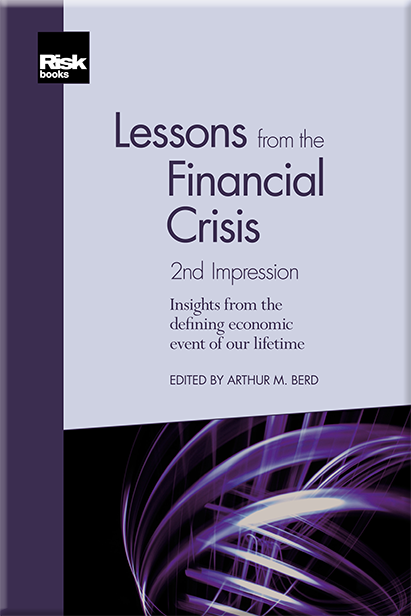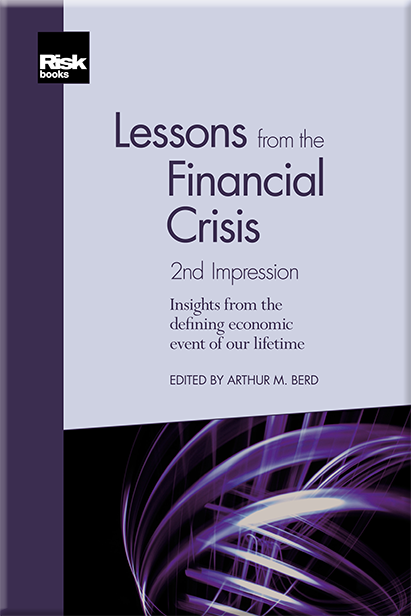Lessons from the Financial Crisis
Lessons from the Financial Crisis
Couldn't load pickup availability
Now with a fully updated Preface that details how the lessons, insight and wisdom provided in the first impression of this book are still as relevant today as they were on the day of original publication. Some even more so.
Lessons from the Financial Crisis is an essential and comprehensive resource for market participants, researchers, regulators, academics and governments worldwide.
Containing both academic analysis and practical insights from renowned researchers and leading authorities such as John Hull and Stuart Turnbull, all aspects of the crisis which has defined a generation are rigorously examined.
“This book has an extraordinary range of well organized chapters from highly distinguished financial academics and practitioners. Given the poor historical record of learning “lessons” from financial crises, this book provides an invaluable opportunity to gain multiple important perspectives from people in a position to share substantial wisdom that should not be missed.”
Bennett W. Golub, Chief Risk Officer, BlackRock, Inc.
Share

More information
About the Author
Table of contents
The Roots of the Crisis
1. The Credit Crunch of 2007: What Went Wrong? Why? What Lessons Can be Learned?
John C. Hull [University of Toronto]
2. Underwriting versus Economy: A New Approach to Decomposing Mortgage Losses
Ashish Das, Roger M. Stein [Moody’s Research Labs]
3. Credit Expansion, Leverage and the Shadow Banking System
Paul McCulley [PIMCO]
4. The Collapse of the Icelandic Banking System
David Lando, Rene Kallestrup [Copenhagen Business School]
5. The Quant Crunch Experience and the Future of Quantitative Investing
Robert Litterman [GSAM, retired]
The Impact on the Markets
6. The Impact of the Crisis on the OTC Derivatives Markets
Jeff Rosenberg [Bank of America Merrill Lynch]
7. The Re-Emergence of Distressed Exchanges in Corporate Restructurings
Edward I. Altman, Brenda Karlin [NYU]
Risk Management and Regulation
8. Modeling Systemic and Sovereign Risks
Dale F. Gray, Andreas A. Jobst [IMF]
9. Measuring and Managing Risk in Innovative Financial Instruments
Stuart M. Turnbull [University of Houston]
10. Forecasting Extreme Risk of Equity Portfolios with Fundamental Factors
Vladislav Dubikovsky, Michael Y. Hayes, Lisa R. Goldberg, Ming Liu [MSCI Barra]
Quantitative Modelling
11. Limits of Implied Credit Correlation Metrics Before and During the Crisis
Damiano Brigo [King’s College], Andrea Pallavicini [Banca Leonardo], Roberto Torre-setti [QCM]
12. Another View on the Pricing of MBS, CMOs, CDOs of ABS
Jean-David Fermanian [CREST-ENSAE]
13. Pricing of Credit Derivatives with or without Counterparty and Collateral Adjustments
Alexander Lipton, David Shelton [Bank of America Merrill Lynch]
14. A Practical Guide to Monte Carlo CVA
Alexander Sokol [CompatibL]
Market Efficiency and (In)Stability
15. The Endogenous Dynamics of Markets: Price Impact, Feedback Loops and Instabilities
Jean-Philippe Bouchaud [CFM]
16. Market Panics: Correlation Dynamics, Dispersion, and Tails
Lisa Borland [Evnine and Assoc.]
17. Financial Complexity and Systemic Stability in Trading Markets
Matteo Marsili, Kartik Anand [ICTP]
18. The Martingale Theory of Bubbles: Implication for the Valuation of Derivatives and Detecting Bubbles
Robert A. Jarrow, Philip Protter [Cornell University]
Lessons for Investors
19. Managing through a Crisis: Practical Insights and Lessons Learned for Quantitatively Managed Equity Portfolios
Peter J. Zangari [GSAM]
20. Active Risk Management: a Credit Investor’s Perspective
Vineer Bhansali [PIMCO]
21. Investment Strategy Returns: Volatility, Asymmetry, Fat Tails and the Nature of Alpha
Arthur M. Berd [CFM]

